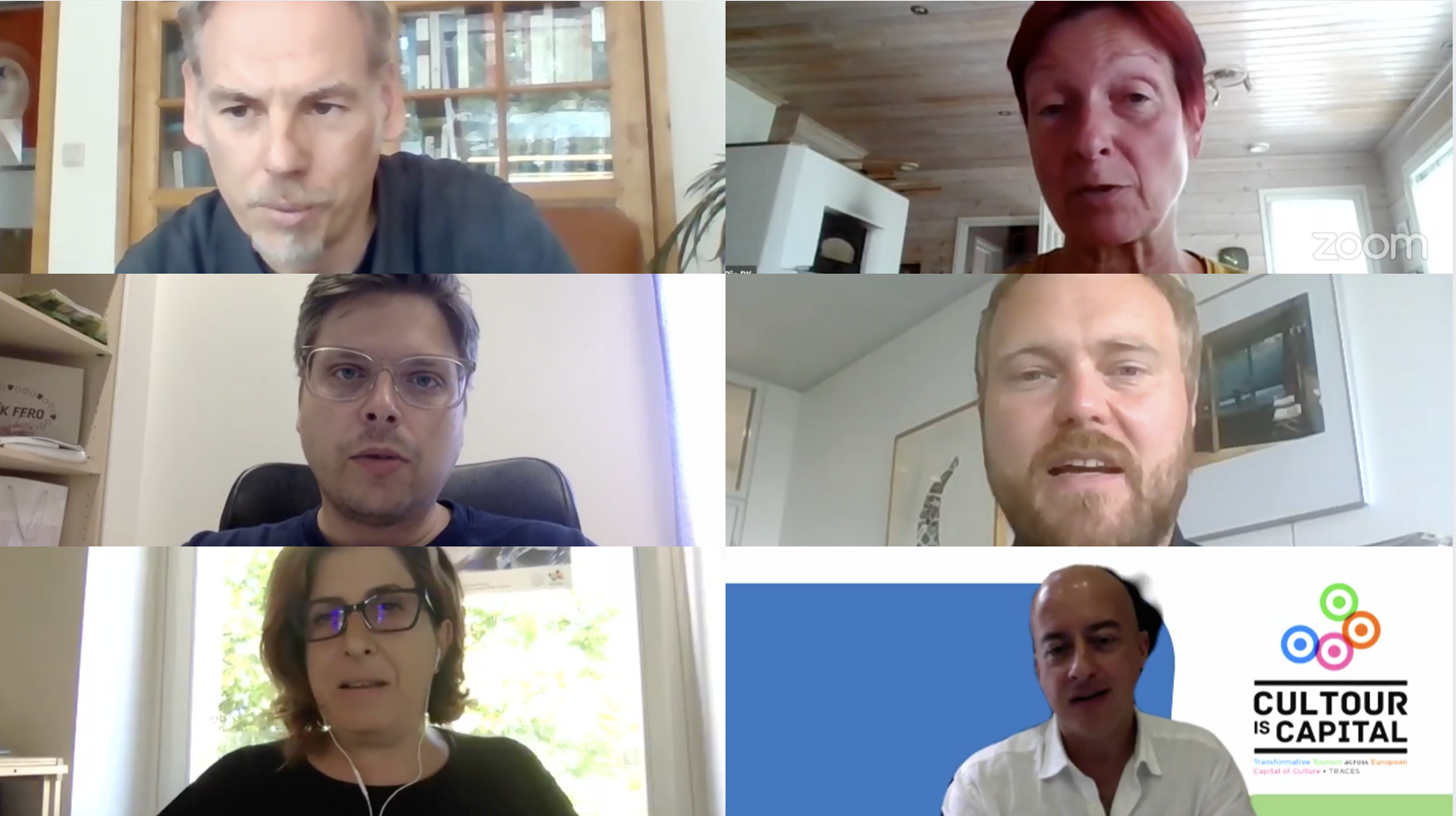Cultour is Capital prepared its first online meeting last July. The theme was ECoCs and their capacity to raise local economies, promote the tourism sector, and increase the creativity value of a city. There were 6 specialists in tourism, ECoCs, and creativity who leaded the conversation.
The speakers were Jan-Paul Laarmann -Head of Innovation, Cross-Cluster-Corporations, Overall, Dirk Slawetzki – Tourism Manager of the City Marketing Association Gelsenkirchen, Rita Orlando, Project manager Open Design School Matera, Michal Hladky – director of Creative Industry Kosice, Piia Rantala-Korhonen – Director, Advisor to the Mayor at Oulun kaupunki – City of Oulu and Josep Maria Palau, as the moderator and travel journalist.
Pandemic and tourism
The pandemic has affected everyone and everything in the world, including ECoCs and tourism, this was the first topic to be discussed in the meeting. The speakers shared their point of view on how to attract tourists nowadays, by either designing new products or adjusting the ones there were before. Rita Orlando said about it: “In the case of Matera, the last European Capital of Culture, people are back traveling because of how beautiful the city is, it is not because of the tourist attractions. People are coming for their postcard effect. But we are starting to rebuild our cultural offer to give a diverse and more qualified tourism experience. We are designing cultural offers that can be attractive to tourists for them to be deeply connected to the city. For example, we are launching a new festival in the performing arts. We invite different professionals to work together, these events are tailored and adjust to the pandemic. By doing social distancing but adding the artistic perspective”.
On the other hand, Jan-Paul Laarmann recognized that even if there is big trouble around the sector, there is as well a great change and opportunity for people to enjoy the attractions, “people won’t change continents at the moment but Europeans will travel around Europe. There is a great chance for European domestic travelers to enjoy and get in touch with their cultural heritage to experience something they normally won’t experience, otherwise because they will choose something else”. Michal Hladky from Kosice added: “We are experiencing a lot of domestic flights; people are arriving with their families and we didn’t have that before”. He mentioned also that tour operators should work on the audience because “nowadays the audience might be closer than what we thought, it might be our citizens“.
In the case of Dirk Slawerzy from Gelsenkirchen Tourist Board, he explained how they are having a different approach, since large cultural events are not taking place at the moment the locals are switching to regional activities such as cycling and hiking. The Ruhr area is trying to make staying at home interesting.
Besides, they reflected on how the pandemic should push everyone to change their future perspectives. ECoCs should not keep doing blockbuster events opening ceremonies in the same way they were doing before, things should change to a more meaningful thought and a new perspective, experts agreed.
Technology and the new perspective
Since technology had a big increase in the pandemic, it was important to discuss how this could affect or help tourism. In museums, virtual and augmented reality is being used a tool, however as Jan-Paul Laaarman said, “that virtual and augmented reality should not saturate the tourist, it should leave them hungry for more, or this could lead to cannibalizing tourism”.
All the speakers agreed that digital technology should be a tool for tourism and communities not a replacement of traveling, these should help with the local attractions for tourists to have a more meaningful trip.
From Piaa Rantala-Korhonen point of view, this pandemic has taught us to use technology in a good way. For instance, before, people will travel for a 20 min talk and go back to their city while nowadays it can be solved with a simple video call. Technology can be a substitution for our lifestyle and live a calmer life, expressed the expert.
Finally, they all concluded that technology can be a great way for the artists to develop hybrid platforms that ECoCs can use to create a network between creativity, for tourists to start a virtual trip for later continuing in the real world. You can watch full version of the Webinar here:

